GENEVA / SEOUL (27 June 2018) – The United Nations Special Rapporteur on the situation of human rights in the Democratic People’s Republic of Korea (DPRK), Tomás Ojea Quintana, will visit Seoul from 2 to 10 July. This will be the UN expert’s first official mission to Seoul since the easing of tensions on the Korean peninsula.
“My upcoming visit to Seoul is part of my ongoing assessment of the situation of human rights in the DPRK,” Ojea Quintana said. “This visit is particularly important because of the opportunity it affords to underscore the importance of human rights to be part of the ongoing dialogue on denuclearization.”
The UN expert, while welcoming the current rapprochement, has repeatedly called for world leaders to engage in dialogue with North Korea on human rights. “Bringing human rights to the table is not a hindrance but a way to ensure that talks are real and sustainable,” he said.
During his eight-day mission, Ojea Quintana will meet with senior members of the Government of the Republic of Korea, as well as members of the diplomatic community. He is also expected to meet with representatives of civil society organisations, the Korean Red Cross and the National Human Rights Commission of Korea. He will also meet with people who have recently left the DPRK.
The Special Rapporteur undertakes regular visits to the Republic of Korea and reports annually to the UN Human Rights Council and the General Assembly. The upcoming visit is his fourth visit to the Republic of Korea since his appointment by the Human Rights Council in March 2016. He last visited Seoul in December 2017.
Despite repeated requests made to date, the DPRK has not granted the UN expert access to the country.
The special rapporteur will hold a press conference on Tuesday 10 July, from 10:30 to 11:30 (local time) at the Korea Press Center (124, Sejong-daero, Jung-gu), Seoul. Access to the press conference is strictly limited to journalists.
Ojea Quintana will report his findings and recommendations to the General Assembly in October 2018.
ENDS
Mr. Tomás OJEA QUINTANA (Argentina) was designated as the Special Rapporteur on the situation of human rights in the DPRK by the UN Human Rights Council in 2016. Mr. Ojea Quintana, a lawyer with more than 20 years of experience in human rights, worked for the Inter-American Commission of Human Rights, and represented the Argentinian NGO “Abuelas de Plaza de Mayo” in cases concerning child abduction during the military regime. He is a former Head of OHCHR human rights programme in Bolivia, and served as the UN Special Rapporteur on the situation of human rights in Myanmar from 2008 to 2014.
The Special Rapporteurs are part of what is known as the Special Procedures of the Human Rights Council. Special Procedures, the largest body of independent experts in the UN Human Rights system, is the general name of the Council’s independent fact-finding and monitoring mechanisms that address either specific country situations or thematic issues in all parts of the world. Special Procedures’ experts work on a voluntary basis; they are not UN staff and do not receive a salary for their work. They are independent from any government or organization and serve in their individual capacity.
UN Human Rights, country page: DPRK
OHCHR Seoul Office
For additional information and media requests, please contact in English, Olga Nakajo (+41 22 928 9348 before and after the visit; and +41 79 444 3702 during the visit/ onakajo@ohchr.org) or in Korean, Yumi Song (+82 2 725 3524 / ysong@ohchr.org)
For media inquiries related to other UN independent experts:
Jeremy Laurence, UN Human Rights – Media Unit (+ 41 22 917 9383 / jlaurence@ohchr.org)
This year is the 70th anniversary of the Universal Declaration of Human Rights, adopted by the UN on 10 December 1948. The Universal Declaration – translated into a world record 500 languages – is rooted in the principle that “all human beings are born free and equal in dignity and rights.” It remains relevant to everyone, every day. In honour of the 70th anniversary of this extraordinarily influential document, and to prevent its vital principles from being eroded, we are urging people everywhere to Stand Up for Human Rights: www.standup4humanrights.org
